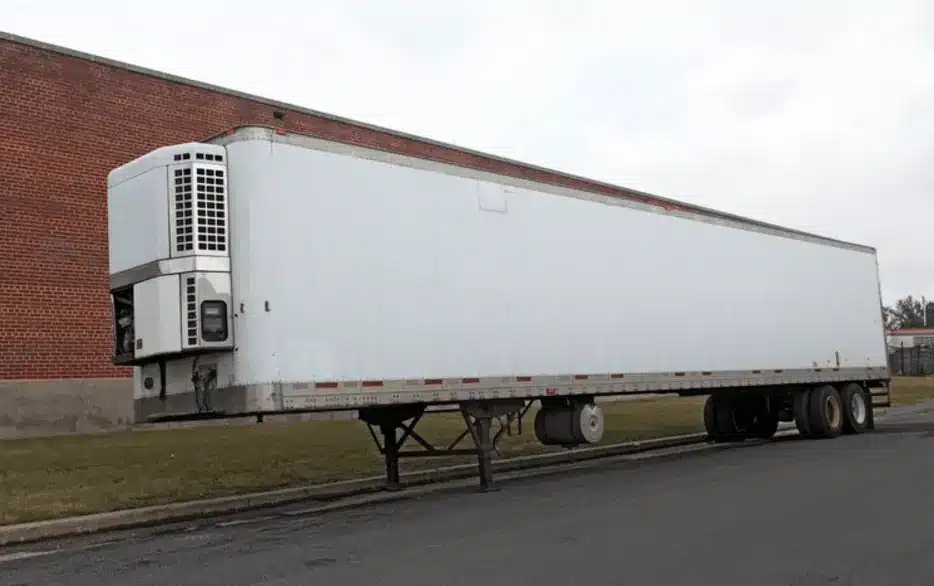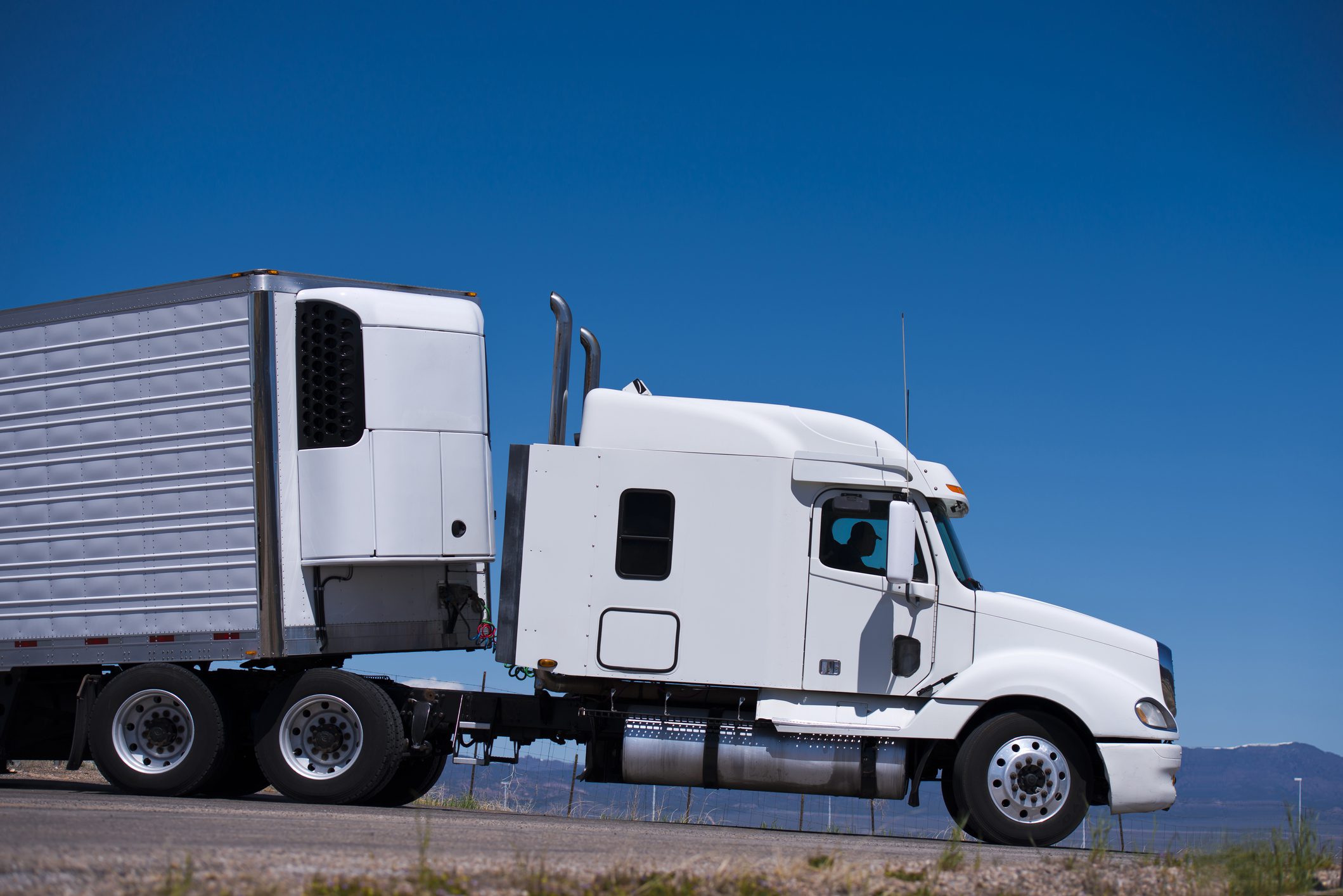Choose Thermo King Truck Refrigeration for Long-Haul Freshness
Choose Thermo King Truck Refrigeration for Long-Haul Freshness
Blog Article
Leading Advancements in Transportation Refrigeration: Enhancing Efficiency and Safety And Security
The landscape of transport refrigeration is going through significant makeover, driven by innovations intended at enhancing both performance and safety and security. As these developments proceed to develop, it is essential to explore their effects on operational techniques and regulatory compliance, prompting a better assessment of how they reshape the future of transportation refrigeration.
Smart Temperature Checking Systems
In the realm of transportation refrigeration, wise temperature surveillance systems have arised as a crucial development for making sure the stability of temperature-sensitive products. These innovative systems leverage Internet of Things (IoT) modern technology to provide real-time data on temperature variations, enabling drivers to maintain optimal problems throughout the supply chain. By constantly tracking the temperature of cooled containers and cars, firms can quickly recognize variances that might jeopardize product high quality.

In addition, smart tracking systems commonly integrate automated signals and alerts, enabling stakeholders to respond quickly to any kind of prospective concerns. This aggressive approach not only minimizes the danger of perishing but likewise boosts conformity with regulative criteria regulating food security and pharmaceutical transportation.
The integration of data analytics within these systems likewise helps with predictive upkeep, aiding operators to predict possible devices failures before they occur. This capability lowers downtime and optimizes operational efficiency, eventually bring about set you back financial savings.
Eco-Friendly Refrigerants
Smart temperature level surveillance systems play a crucial role in preserving item quality, but the effectiveness of transportation refrigeration also rests on the selection of refrigerants utilized. As ecological concerns increase, the shift in the direction of environment-friendly cooling agents has actually become vital. Standard cooling agents, such as hydrofluorocarbons (HFCs), are well-known for their high Global Warming Potential (GWP), contributing considerably to climate adjustment. On the other hand, emerging choices like hydrocarbon-based cooling agents and hydrofluoroolefins (HFOs) existing reduced GWP choices, supplying both performance and sustainability.
These green refrigerants not only lessen ecological impact however additionally line up with international regulations targeted at phasing out hazardous compounds. Their adoption can result in improved power efficiency, inevitably reducing operating expense for transport refrigeration systems. In addition, making use of natural refrigerants, such as ammonia and carbon dioxide, has obtained grip as a result of their excellent thermodynamic residential or commercial properties and lower environmental impact.
Buying environment-friendly refrigerants is not simply a regulatory conformity action; it represents a tactical decision that boosts brand name online reputation and promotes customer loyalty. thermo king truck refrigeration units. By prioritizing sustainable methods, business can add to a greener future while making sure the honesty of moved items
Advanced Insulation Materials
Utilizing innovative insulation products is vital for optimizing transport refrigeration systems, as they considerably enhance power efficiency and keep regular temperature level control. Standard insulation techniques often drop short in stopping thermal transfer, bring about boosted power intake and fluctuating temperatures within refrigerated compartments.
Arising products such as vacuum cleaner protected panels (VIPs) and aerogels offer exceptional thermal resistance, enabling thinner profiles without jeopardizing performance. VIPs, for example, utilize a vacuum layer to minimize conductive and convective heat transfer, making them perfect for space-constrained applications. Aerogels, understood for their porous and lightweight framework, provide phenomenal insulation while significantly reducing general system weight.
Furthermore, incorporating phase modification products (PCMs) right into insulation systems can even more support temperatures throughout transit. These products take in and release thermal power, efficiently buffering against outside temperature variations.
The assimilation of these advanced insulation products not only like this reduces the operational costs linked with power usage but additionally expands the shelf life of temperature-sensitive products. As the transportation refrigeration market remains to advance, the fostering of innovative insulation modern technologies will be crucial in improving both performance and safety in refrigerated transport.
Automated Route Optimization
The efficiency of transportation refrigeration systems is significantly boosted through automated path optimization, which leverages advanced algorithms and real-time information to identify the most efficient paths for shipment. By evaluating different variables such as web traffic patterns, climate conditions, and shipment home windows, these systems can substantially lower travel time and fuel intake.
Automated course optimization minimizes human error and subjective decision-making, which can cause inefficiencies. This technology allows fleet managers to allot sources a lot more properly, guaranteeing that cooled products keep their needed temperature level throughout the journey. By maximizing routes, firms can likewise enhance consumer fulfillment via prompt distributions.
Additionally, automated systems can adjust to unanticipated circumstances, such as road closures or sudden traffic spikes, permitting for vibrant rerouting. This flexibility not just safeguards the integrity of temperature-sensitive products however also adds to general functional efficiency.
Executing automated path optimization can cause substantial expense financial savings while reducing the carbon impact linked with transportation. As businesses progressively focus on sustainability, this development stands out as a crucial element in modern-day transport refrigeration, aligning functional goals with ecological obligation. Ultimately, automated route optimization represents a substantial innovation in the quest for efficiency and safety in transportation refrigeration.

Real-Time Information Analytics
Automated route optimization significantly advantages from the combination of real-time information analytics, which supplies essential insights into the performance of transport refrigeration systems. By utilizing real-time information, transportation operators can keep an eye on temperature level fluctuations and devices efficiency, making certain that disposable products are kept within required parameters throughout transportation. This positive strategy not only boosts the top quality of the carried products however additionally mitigates the risk of putridity and loss.

In addition to boosting effectiveness, real-time analytics improves security by ensuring conformity with governing standards for temperature control. This not just shields public wellness however likewise fortifies a company's credibility - reefer trucks thermo king. As Bonuses the transport refrigeration industry progresses, the combination of real-time information analytics becomes a foundation for driving innovation, sustainability, and functional excellence
Verdict
In verdict, the advancements in transportation refrigeration dramatically boost both effectiveness and security within the industry. Smart temperature level monitoring systems and real-time data analytics give critical oversight, while green cooling agents and advanced insulation materials contribute to sustainability and power effectiveness. Automated path optimization algorithms not just reduce traveling time yet also reduce ecological impact. Jointly, these technologies stand for a critical evolution in transportation refrigeration, guaranteeing compliance with regulative criteria and promoting a greener future.
The landscape of transport refrigeration is going through significant improvement, driven by innovations aimed at improving both efficiency and safety and security.Smart temperature level surveillance systems play a crucial function in preserving item high quality, yet the efficiency of transport refrigeration likewise hinges on the option of cooling agents utilized. Their fostering can lead to boosted energy efficiency, ultimately reducing operating expenses for transport refrigeration systems. Inevitably, automated path optimization represents a significant improvement in the pursuit for performance and safety and security in transportation refrigeration.
In conclusion, the innovations in transportation refrigeration significantly enhance both performance and safety and security within the sector.
Report this page